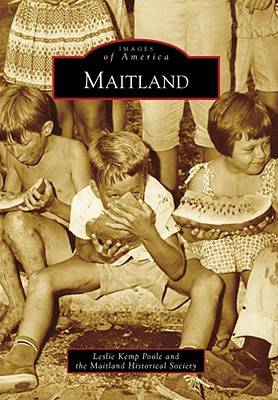
- Afhalen na 1 uur in een winkel met voorraad
- Gratis thuislevering in België vanaf € 30
- Ruim aanbod met 7 miljoen producten
- Afhalen na 1 uur in een winkel met voorraad
- Gratis thuislevering in België vanaf € 30
- Ruim aanbod met 7 miljoen producten
Zoeken
€ 34,95
+ 69 punten
Uitvoering
Omschrijving
Maitland, known by members of the Seminole tribe as Fumecheliga (the muskmelon place), has a history as diverse and beautiful as its tranquil lake-studded Florida landscape. Named for a soldier who never saw it, the city got its start as an army fort in the Second Seminole War. Later its temperate climate and rich soil drew settlers who put their dreams, sweat, and savings into the soil, growing vegetable crops, raising cattle, and planting extensive citrus groves. Others soon followed, including a number of wealthy winter residents who sought refuge from northern winters and better health in the warmer climate. Together they built a city that served as a center of commerce, learning, and art for the area. Today much of the citrus industry is gone, replaced with subdivisions, thriving office centers, and a cultural corridor, but Maitland remains a place where people move to make better lives. The muskmelons may be gone, but the cypress tree-lined lakes and historic homes serve as reminders of the city's rich history upon which its current success was built.
Specificaties
Betrokkenen
- Auteur(s):
- Uitgeverij:
Inhoud
- Aantal bladzijden:
- 128
- Taal:
- Engels
- Reeks:
Eigenschappen
- Productcode (EAN):
- 9780738566061
- Verschijningsdatum:
- 17/08/2009
- Uitvoering:
- Paperback
- Formaat:
- Trade paperback (VS)
- Afmetingen:
- 165 mm x 236 mm
- Gewicht:
- 322 g

Alleen bij Standaard Boekhandel
+ 69 punten op je klantenkaart van Standaard Boekhandel
Beoordelingen
We publiceren alleen reviews die voldoen aan de voorwaarden voor reviews. Bekijk onze voorwaarden voor reviews.











